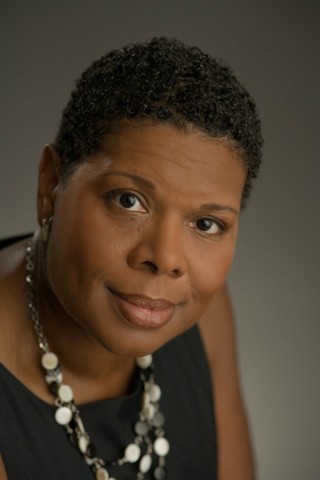Editor’s note: The Flyer is sharing this story from the Memphis magazine website because of its timeliness.
Each December since 2013, Memphis magazine has named a Memphian of the Year. 2020 marks the first year that our selected Memphian of the Year announced she is leaving her post and, in fact, the city, just two days after the December issue was published. That’s what happened this morning when news broke that Terri Freeman would be resigning as director of the National Civil Rights Museum, effective February 3, 2021. 
I interviewed Freeman for the December cover story at the end of October; we went to press with the issue the day before Thanksgiving, not knowing that the Memphian of the Year article would be transformed into a sort of thankful farewell by the time most readers picked up a copy or read the story online. When I saw the news this morning of her resignation, I was certainly surprised. Freeman had not mentioned any plans to depart during our extensive conversation; she told me today that she had considered whether she ought to bring it up, and decided that it wouldn’t be right to share the news with a magazine before telling many of those closest to her. And anyway, the Memphian of the Year honor is a marker of what someone has accomplished already, not what that person may or may not do tomorrow. Freeman’s existing contributions to Memphis are undeniable.
One strand of our October conversation stands out vividly today, in my memory: She and I empathized about the difficulties of being in a marriage that requires commuting. Her husband leads a congregation in Baltimore; mine teaches at a law school in Alabama. It’s tough dealing with chronic separation from the person you lean on most in the world, and keeping up the commuting lifestyle for months and then years doesn’t magically make it any easier — if anything, the opposite is true.
I spoke with Freeman this morning to ask her to shed some light on the news of her departure. She noted that “2020 was a really hard year for me” – beginning with a bad car accident in January, followed by the pandemic and associated shutdowns, and then losing her mother midway through the year. Her husband has been commuting between Memphis and Baltimore for six years, and Freeman says the two had decided that by the end of 2021, they needed to find a way to get their family back under one roof. Her husband “had tried to get a church here,” she said, “but it just didn’t work. He didn’t push me, and the job wasn’t something I was looking for.” Indeed, when she got a call from the Reginald Lewis Museum in Baltimore that they were looking for a new executive director, she said that initially, she “was not in the mindset to be thinking about this stuff.” But they pursued her, and she ultimately decided that this was the right time to make the move: the NCRM is in a stable position, and she feels good about handing over the reins.
“We don’t know what the future holds,” Freeman commented, “and neither one of us [her or her husband] is getting younger. We would like to be together.”
Before we hung up, Freeman told me that she has great love for Memphis. “I will always be an adopted child of this city,” she said, “and I am happy that I have been able to leave something behind that’s beneficial.”
Anna Traverse is CEO of Contemporary-Media and the editor of Memphis magazine.
